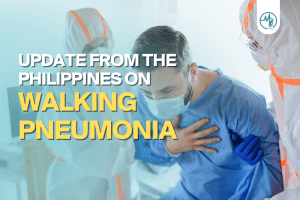The online buzz around spearmint tea’s potential for hormonal balance and PCOS finds its roots in scientific research.
Over recent years, the digital realm has been abuzz with discussions on the benefits of spearmint tea, particularly its potential role in hormonal regulation and alleviating symptoms of Polycystic Ovary Syndrome (PCOS). Is this just an online fad, or is there substantial research to support these claims?
Spearmint Tea and Its Impact on Hirsutism in Polycystic Ovarian Syndrome (PCOS)
Hirsutism, characterised by excessive hair growth, often stems from elevated androgen levels, especially in women with Polycystic Ovarian Syndrome (PCOS). Such elevated levels not only present cosmetic concerns but also lead to significant psychological distress.
Current therapies, like oral contraceptives and medications such as spironolactone, aim to suppress androgen production or block androgen effects. However, these treatments can have side effects, including potential liver toxicity.
Research on Spearmint Tea and PCOS Outcomes
Recently, spearmint tea has emerged as a possible natural remedy for this condition. A randomised controlled trial spanning 30 days, involving 42 female patients with confirmed PCOS, revealed promising results. The participants, aged between 19-42, were randomised to consume either spearmint tea or camomile tea (serving as placebo) twice daily. The findings were as follows:
Androgen Levels
By the end of the trial, there was a significant reduction in both free and total testosterone levels in the spearmint tea group.
LH and FSH Levels
An increase in luteinising hormone (LH) and follicular stimulating hormone (FSH) was observed in the spearmint tea group.
Patient Self-Assessment
Using the modified Dermatology Quality of Life Index (DQLI), there was a marked decrease in self-reported hirsutism scores in the spearmint tea group. However, when assessed using the Ferriman-Gallwey score, there was no significant difference between the spearmint and placebo groups.
The lack of a significant reduction in Ferriman-Gallwey scores, despite the reduction in androgen levels, can be attributed to the complex relationship between androgens and hair follicular growth. Hair growth and cell turnover rates mean that visible changes in hirsutism might require more extended periods than the study’s duration.
The study reinforced findings from earlier Turkish research that also highlighted the anti-androgenic properties of spearmint tea. However, the exact mechanisms through which spearmint interferes with androgen activity remain uncertain and warrant further investigation.
What is the Ferriman-Gallwey Score?
The Ferriman-Gallwey (F-G) score is a clinical tool that clinicians commonly use to assess and quantify hirsutism in women. Hirsutism causes women to have excessive growth of coarse, dark hair in areas where they usually have fine hair, such as the face, chest, and back. This excessive hair growth can signal an underlying hormonal imbalance, especially increased androgen levels, as seen in conditions like polycystic ovary syndrome (PCOS).
In the Ferriman-Gallwey scoring system:
Clinicians examine various body areas, including the upper lip, chin, chest, upper abdomen, lower abdomen, upper arms, thighs, upper back, and lower back.
Each area is scored on a scale from 0 to 4:
0 = No terminal hairs (hairs that are coarse and pigmented)
1 = Sparse hair growth
2 = Moderate hair growth
3 = Dense hair growth
4 = Very dense hair growth
The scores from each area are then summed to produce a total score. The maximum possible score is 36.
A higher Ferriman-Gallwey score indicates increased severity of hirsutism. Clinicians typically consider a score of 8 or above as indicative of hirsutism, though this threshold may vary depending on the population and ethnic background. However, it’s important to note that the evaluator’s judgment can influence the F-G score, making it subjective.
Why the Buzz Now? The Digital Age of Health Advocacy and Information
The Internet has revolutionised how we access and share information, and this is particularly true in the realm of health and wellness. Today, more than ever, individuals have the tools at their fingertips to research, discuss, and disseminate knowledge about various health topics.
This democratisation of information has led to increased health advocacy, especially among groups of people who historically have often felt marginalised or unheard in traditional medical settings.
Platforms like TikTok have played a pivotal role in this new age of health advocacy. Medical professionals, from doctors to nurses to nutritionists, are taking to these platforms to share bite-sized pieces of advice, research findings, or personal experiences. This surge in accessible health content has been instrumental in bridging the gap between complex medical jargon and everyday understanding.
This means a more empowered stance on their health. They’re not just passive recipients of health advice; they’re actively seeking out information, asking questions, and advocating for their own well-being. When they come across titbits like the potential benefits of spearmint tea for PCOS, they can dive deeper, share with their community, and even bring it up with their healthcare providers.
However, with this flood of information comes a critical caveat: not everything online is accurate or trustworthy. While many medical professionals share credible and valuable insights, the vast and open nature of the Internet also allows for the spread of misinformation. It’s essential for individuals to approach online health claims with a discerning eye, cross-referencing with reputable sources and consulting with their healthcare providers before making any significant changes to their health regimen.
References
Grant, P. (2009, July 7). Spearmint herbal tea has significant anti-androgen effects in polycystic ovarian syndrome. a randomized controlled trial. Phytotherapy Research; Wiley. https://doi.org/10.1002/ptr.2900













